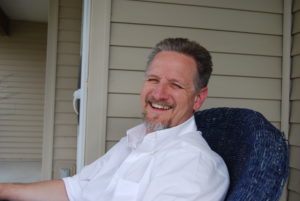Tag Archives: coaching training
How the Martial Art Aikido and Coaching School are the Same…
After coaching class last week and feeling like a clumsy oaf, I vividly remembered my first year training in Aikido. I was an experienced martial artist before I started Aikido having studied both Wing-Chun and Tae Kwan Do to an intermediate level. But, Aikido is different. Aikido is a soft art. This does not mean that it isn’t as intense  physically. It means that learning how to receive a technique is as important as learning how to execute a technique. When I began Aikido, I was pretty good at punching, kicking and blocking. But, following someone’s energy and direction, receiving a technique and flowing with it? I actively resisted this…which is at least half of the art of Aikido. One day I was coming off the mat utterly frustrated, feeling completely incompetent like I had two left feet, two right hands and if I could muster a single coordinated movement like putting one foot in front of the other, it would have been miraculous. My sensei, when on the mat, was a man of few words. Steve taught like he spoke broken English. “MOVE YOUR FOOT!!!” sternly spoken with a Japanese Samauri accent was a frequent instruction. He taught like this because he learned Aikido from a Japanese man who spoke broken English. Steve was, in fact, a white boy, born and raised in the U.S. Steve clearly saw my frustration and said something like, “When you execute a technique correctly, you are not learning anything. You have already learned it. It is only when you are frustrated that you are learning anything. What are you here for?”
physically. It means that learning how to receive a technique is as important as learning how to execute a technique. When I began Aikido, I was pretty good at punching, kicking and blocking. But, following someone’s energy and direction, receiving a technique and flowing with it? I actively resisted this…which is at least half of the art of Aikido. One day I was coming off the mat utterly frustrated, feeling completely incompetent like I had two left feet, two right hands and if I could muster a single coordinated movement like putting one foot in front of the other, it would have been miraculous. My sensei, when on the mat, was a man of few words. Steve taught like he spoke broken English. “MOVE YOUR FOOT!!!” sternly spoken with a Japanese Samauri accent was a frequent instruction. He taught like this because he learned Aikido from a Japanese man who spoke broken English. Steve was, in fact, a white boy, born and raised in the U.S. Steve clearly saw my frustration and said something like, “When you execute a technique correctly, you are not learning anything. You have already learned it. It is only when you are frustrated that you are learning anything. What are you here for?”
So, this week after a particularly frustrating experience with a difficult client, sensei’s words came back to me. I felt similarly to that moment walking off the mat, “What did I do wrong? What should I have done differently? Have I gained any competence in this at all? Can you actually, physically step on your tongue because that’s what it feels like I have been doing all night?” And, I remembered, “’What are you here for?’ This is part of the learning process. Feeling awkward, unsure of myself, uncomfortable, clumsy, oafish, all of it is part of learning. So, what am I here for? If I were an MCC level coach, I wouldn’t be taking the class to begin with. Do I want to learn or not? There’s only one way to get there: fall down and get up. Fall down and get up. Repeat until lessons are learned…”
‘Sigh,’ it is uncomfortable. After practicing Aikido, I always wake up the morning after physically sore. After practicing coaching, sometimes I get up the next day sore but in a different way. I have learned to enjoy feeling sore. It means I’m learning.
In the fall, I will be testing for my black belt. In the relatively near future, I will be testing for MCC level coaching. These points are reached only after falling and getting up, literally and figuratively countless times. It’s all good.
Tom Boomershine has been a United Methodist pastor for over 20 years. Through his ministry, Tom has coached over 100 people in their relationships, life transitions and career transitions. Author of the soon to be published book, “After Ever After,” he is currently in the process of becoming an ICF Associate Certified Coach through Marianna Lead’s Goal Imagery® Institute, International School of Coaching Mastery™. Tom believes everyone has unique gifts given by our creator to be used for a purpose.
Coaching & Training: Being Aware & Managing Your Feelings as a Coach
One of my coaching clients is a project manager. During our coaching session, which was focused on some time management issues that he had, he asked me to share how I manage my own time. I felt a bit uncomfortable about his request, but rushed to offer him all I know about time management and how I manage my own time. After talking for a few minutes, I mentioned that our schedules and life challenges are very different. I asked him how what I have shared might have been useful for him. He didn’t respond to that directly, but my feeling was that the time spent on that wasn’t very effective.
When our coaching session was over, I thought to myself about why I went into explaining how I manage my time. And then I had this discovery : I acted out from the “wrong” place, from the place of not wanting to be judged by my client as someone who withholds useful information, someone who is too secretive or even worst, not helpful enough to her clients. If I were to take a moment to really understand my feelings at the time when he asked me to share “my story”, I would have acted differently. I would have said, “I’m happy to share with you how I manage my time, but our lives and challenges are so different. And as a project manager with as many years of experience as you have, you must know a lot about time management skills. In what way could you apply them to your life?” That would have made our session much more productive and we would have gotten to the solution much quicker.
My big insight: being aware of your own feelings (as a coach) and managing them is just as important as understanding your client’s feelings. Just as we check in with our client to make sure that we understand them and that we are on the right track, we must check in within ourselves to make sure that our questions and comments come from the right place.
Copyright © 2012 by Marianna Lead & www.GoalImageryInstitute.com All Rights Reserved in All Media.


